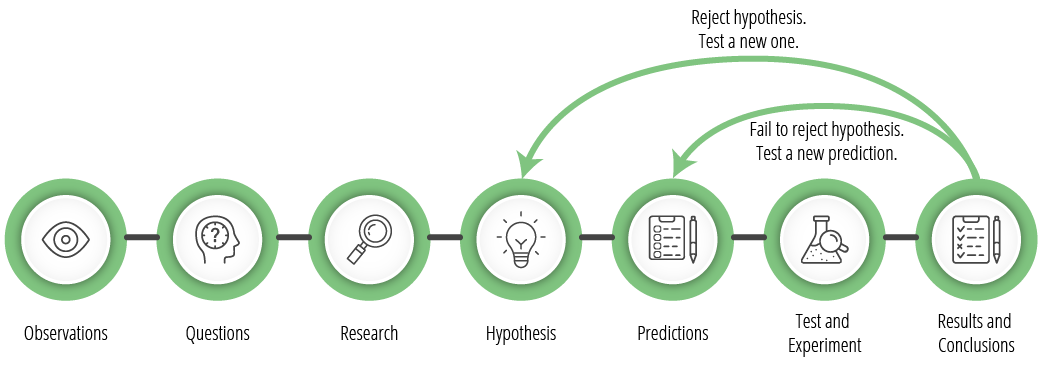A new online module about the scientific method that was created for an introductory Earth Sciences course has been incorporated into a number of courses across the Faculty of Science and the Open Science Framework.
The module originated from the Earth and Environmental Sciences Department’s commitment to improve undergraduate learning by integrating active and experiential instructional methods into various courses. As a result, there was a focus to explicitly account for and reinforce the scientific method across all courses while integrating current industry tools, software and techniques.
Keith Delaney, a lecturer in the Department of Earth and Environmental Sciences, worked with Jane Chomyc and Antonina Joukova from the Centre for Extended Learning to create a module and video on the Scientific Method.
“We hope to use this module throughout a student’s career, as a resource to fall back on when needed, when writing up a Lab or Research Report, or more importantly, their Thesis or Capstone projects,” said Delaney. “We feel this will help to encourage more scientific critical thinking.”
The Module
The Earth and Environmental Sciences Department is changing their undergraduate learning culture by including online modules to build factual knowledge and focus class or field work time on building the student’s conceptual and procedural knowledge bases.
The scientific method module is introduced in a first-year course (Earth 122 - An Introduction to Earth Sciences) and then referenced in second- and third-year courses. By the time fourth-year students need to generate a hypothesis for their research project they will have a robust understanding of the scientific method.

The scientific method is a systematic problem-solving approach used by scientists to explore observations and answer questions. It has seven steps and two feedback steps. The seven steps are: observation, questions, research, hypothesis, prediction, test and experiment as well as results and conclusion.
The module includes: learning objectives, video, explanations of each step and two learning checkpoints, questions about applications and a list of additional resources. Students access the module on Learn.
The video outlines and describes the process and steps of the Scientific Method using a global climate change example. This topic was selected specifically because it combines all the different Waterloo science disciplines: Earth, Chemistry, Physics and Biology.
Delaney plans to capture data from each cohort to determine the effectiveness of the project.
Finding new horizons
Originally, the video was going to focus on Earth Science themes like rock, water and resource as the example to demonstrate the scientific model. But early on it was suggested that the team consider making the video example broader so it would be relatable for different scientific disciplines.
Global climate change was chosen as the new example to explain the scientific method because it touches on biology, chemistry, physics and earth sciences. As a result of its’ broad applicability, the module has been incorporated as a resource in other courses in the Faculty of Science.
As the university moved to online classes due to COVID-19, the module grew in popularity and is being highlighted as an example of online learning for incoming students. It was included in the Waterloo Ready welcome package for incoming students.
Recently, the scientific method module has also been posted on the Open Science Framework, an open source collaborative platform. Now, the module is freely available to the public and can be used as a teaching resource for elementary and high school students.
“This is a concrete example of the ripple effect of one project that will be helpful for a number of students, instructors and courses for many years to come,” said Jason Thompson, CTE Liaison for Science.
Delaney is passionate about teaching and has contributed significantly to improving the learning environment for Earth Students. As a graduate student, he received the Amit & Meena Chakma Awards for Exceptional Teaching by a Student in 2012 and is currently the Teaching Fellow for the Department of Earth and Environmental Sciences. He also received the 2019 Outstanding Performance Award for outstanding contributions in teaching and scholarship.
This project was supported by the Dean’s Undergraduate Teaching Incentive (DUTI). A one-time commitment of $500,000 to support teaching and learning initiatives that enhance the science undergraduate educational experience at the University of Waterloo. Specifically, the funding supported the implementation of innovative and effective evidence-based teaching approaches within the Faculty of Science.